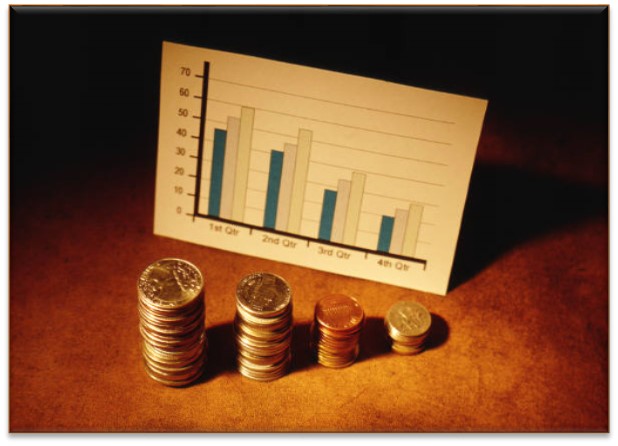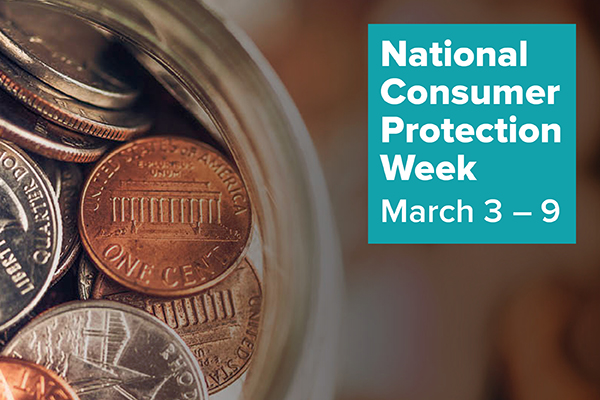JAN is fortunate to be able to use the JAN Blog as a vehicle for interviewing an organization, employer, individual, or business about how their work contributes to the employability of people with disabilities. In this Blog post, we’ve interviewed Boaz and Minerva Santiago – the founders of Picasso Einstein about their efforts to promote and support viable self-employment opportunities for individuals with developmental disabilities.
1. Can you tell us about yourself, your background, and what inspired you and your wife to start Picasso Einstein?
First off, at home, my wife and I are truly like Picasso and Einstein, although that is not how the name of the company came about. My wife, a special needs planning attorney (clearly Einstein) is very analytical; a planner. Whereas, with my psychology background and love for technology, I tend to be more “free-spirited” if you will; or Picasso-like. When my wife and I married, I was doing what I had loved doing for many years, teaching social entrepreneurship to at-risk youth. My wife said to me one day, “you know, the boys (our two boys with autism) are ‘at-risk’ too.” I was in total agreement. She had been witness, by way of her profession, to way too many families whom had adult children with developmental disabilities with no real employment plans for either the immediate or long-term future. My wife, in her infinite wisdom, as she perceived the future of her own children, knew that both boys, due to their autism, would also struggle with traditional employment; particularly our older son, who is mostly non-verbal and experiences seizures. So we asked ourselves, “If they cannot find regular work, what will they be doing when we are gone?” We had to do something about that question and we both knew that self-employment would be a great place to start. Even though we were unsure if they would actually grow up to be self-employed, we were convinced that we could use a small business venture to teach them all of the things they would have to know whether self-employed or traditionally employed, like workmanship, financial literacy, business basics, communication, community (the business kind) and so much more. And even better, we could get started NOW, even though they were only 10 and 12 years old. So we did just that; we got busy doing something about it!
2. Can you talk a bit about the process you underwent starting your company/organization?
During my years teaching social entrepreneurship, I had written a curriculum that I often used as part of the program delivery. So, my wife and I decided to amend the curriculum to be more attuned to the needs of an at-risk youth due to his/her disability. As we began to think about this venture and our two boys, it led us to the name Picasso Einstein. Why? Because they are two incredibly eccentric boys, that despite their obvious limitations, are incredibly brilliant and artistic in their own unique way. Honestly, both of them are what we would consider a perfect balance between brilliance and art.
So we began putting the pieces together for our program, and were immediately invited to pilot our program with the Dan Marino Foundation through a one-day activity with some of their students. That brief pilot eventually led to us designing, developing, authoring and delivering a one-year post-secondary Entrepreneurship Program within the Dan Marino Foundation, with amazing results. Fifteen students with developmental disabilities started off knowing very little about self-employment, and all graduated from that program by delivering a 5-minute business plan PowerPoint presentation. Each one had their own unique challenges (e.g., reading, verbal communication, self-confidence, and many others), but all were overcome on that day as they each passionately delivered a presentation they never thought possible just a year prior. Although the Dan Marino Foundation did not continue the program, we learned a very important lesson within that relationship. We were sending these students home to parents that were not fully supportive of self-employment for many reasons. Some could not at that time see the potential in their children, while others were simply not familiar with self-employment and could not think beyond traditional means of employment. So we realized that any self-employment program, in order for it to be sustainable and successful, needed the full buy-in from the parents/caregivers and support staff. How? We decided to write a new curriculum, 100% focused on parents/caregivers and professionals interested in knowing how to take the lead to assist someone interested in self-employment. This completely revolutionized our educational programs, because we were now, and continue to be, focused on educating parents/caregivers and professionals.
3. On your Website, you feature 2 quotations – one from Pablo Picasso and the other from Albert Einstein – your organization’s namesakes:
“Art is the elimination of the unnecessary.” – Pablo Picasso
“Science is the refinement of everyday thinking.” – Albert Einstein
Can you talk about how these quotations inform the mission of your organization?
Picasso and Einstein simply seemed so fitting, not only because it describes our children, but also because life requires both approaches. Recently, Dr. Temple Grandin was asked to state one thing that she has learned in her career. She responded: “I used to think that engineering (science) could fix everything. I now realize that creativity (art) is equally as important.” We couldn’t say it any better.
We have a deep respect for the scientists, who feverishly pursue a more in-depth understanding of developmental disabilities. We also have a deep respect and appreciation for those who take more liberal and artistic approaches in their engagement with individuals with developmental disabilities. Both are needed. Both are useful. Both are valued by us, and many. And in the spirit of balance, we would live in a different world if either Picasso or Einstein had never existed. We need both, and they need each other.
4. Can you describe in more detail your program — who you serve, how your services work, and your goals for the future?
With incredible partnerships with organizations such as the University of Miami Center for Autism & Related Disabilities; Olivia’s Angels Foundation; Adonis Autism; United Way of Collier County; and Work For America, as well as a collaboration in the works with the National Down Syndrome Society, Family Care Council of Florida and the North Dakota Department of Public Instruction, we have been able to provide direct education to parents/caregivers and professionals on how to create simple, sustainable and most importantly, meaningful jobs by way of a simple self-employment model.
Initially we organized our own classes for parents, but have come to realize that our footprint is so much smaller than those organizations that already serve thousands of families with developmental disabilities. Hence, we have focused more recently on working directly with organizations interested in our model and in providing access to our education for the families they already serve. Smaller organizations can organize groups of parents that are interested in our #JobCreators program online, or at times, like we do with Adonis Autism, we deliver the 12 hour course in person. For larger organizations that have a solid infrastructure and staff, we offer a program in which we train and mentor staff with the goal of integrating our platform into their organization as a long-term service offering.
Our long-term goal is to provide access to our education to any family, any professional, any organization, and any self-advocate in the world. Recently, we launched our online portal SelfEmploy.org with the goal of providing that access. Proudly, we recently educated a family from New Zealand, confirming the global need for self-employment education.
5. In some segments of the disability/employment community, despite policies supporting self-employment and customized self-employment options, there continues to be a reluctance to support it. From your experience, can you talk about why you think this is the case and what steps you believe can help better facilitate this option?
First off, let me state for the record that Picasso Einstein’s mission is not to create entrepreneurs out of every single individual with developmental disabilities. Instead, our main focus is to provide information, tools, and awareness so that self-employment is offered as a viable first option, instead of the last option. All persons with disabilities simply deserve choices like all of us. It is not only their civic right, it is their basic human right.
With that said, here are some very specific items we find to be barriers to self-employment:
Education: Professional and parental/caregiver education is a substantial barrier. Most individuals, whether they are caregivers or individuals providing employment services have never been self-employed themselves. Additionally, agencies and organizations (such as vocational rehabilitation) do not make self-employment training a priority for their counselors, supervisors, etc. It’s pretty simple. It’s hard to expect people to support something they don’t fully understand or don’t feel prepared to take on. That is where our curriculum hopes to address that barrier directly.
Perception: I once had a disability community leader say in front of an audience during one of our presentations, that we (Picasso Einstein) were “overselling” self-employment. And then he began to establish his argument by asking, “What about those individuals who don’t even know to run out of the house because the fire alarm is blaring?” Mind you, he described my son in that question, and yet my son is successfully pursuing self-employment. Here is the problem. When someone’s perception of the disability population is overwhelmingly based on the focus of one’s limitations, then quite often, things will seem unachievable. We (Picasso Einstein) live by the words, “Always assume competence.” Why? Because when someone assumes incompetence, like the aforementioned disability community leader, not only does he miss the abilities altogether, but far more tragic, he unknowingly removes countless opportunities for a person to try something new, different, and maybe even challenging. Not only does the person lose out, but so does the entire community depending on such a person to be progressive.
Awareness: Knowing you are not alone in the journey is important. We are hoping by way of providing exposure to stories of other families from around the world whom have chosen self-employment as their way forward to meaningful employment, that perhaps more parents, advocates, professionals will also feel comfortable exploring it a little further.
6. If you were asked to describe the 3 most important points or “best practices” you believe are most essential to creating successful and sustainable self-employment options for individuals with disabilities, what would they be and why?
Think Sustainability – Ask yourself — How will the employment plans survive long after the parents/caregivers have passed away?
Step one must be gathering a team — one that consists of a balanced group of individuals such as peers, friends, family members, local college students, other entrepreneurs to help come up with better business concepts, have larger discussions as it pertains to community supports, as well as personal supports for the individual. If all of the intricacies of the business live on the shoulders of the parents, then that business goes out of business on the day of their death. Not only is that not sustainable, it’s not fair to the person.
Think simple – Persons who tend to think in terms of job descriptions really struggle with coming up with self-employment business concepts.
This minimalistic approach to entrepreneurship is far more traditional than most know. Most businesses are founded by identifying a simple niche. What can the business do to address a particular problem? In our approach, the focus is on what the person CAN do that is meaningful to that person and can also generate income.
Community Integration – No business survives and much less thrives without having a pulse in the community.
Many individuals believe that self-employment is about locking yourself up in a garage for a year, living on rock-n-roll and pizza until you come up with the final product. We have seen that movie too. But that is not our perspective at all! On the contrary, if you build specific business activities that require community integration into the very business concept, it now becomes the vehicle for community integration. So imagine this — instead of the person integrating into the community simply because we say it’s important, they do so now because they have something to say, to offer to that community. Having a product or service to sell creates intrinsic motivation and desire to integrate into the community. This creates an environment of community integration that is not forced upon the person, but instead is desired by the person, because they now desire it, for a profit.
At the end of the day, we simply desire that individuals with disabilities have the means and platform that creates and injects meaning and purpose into everything they do, including their community engagement.









